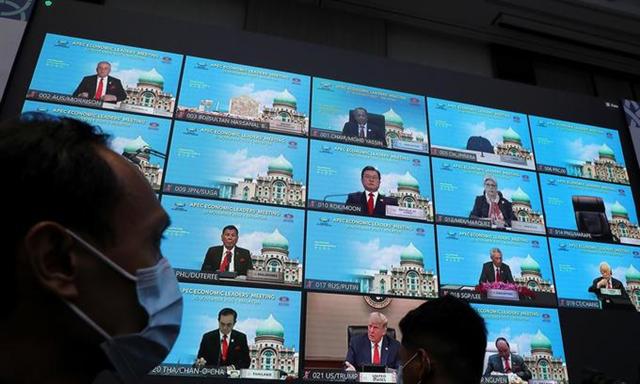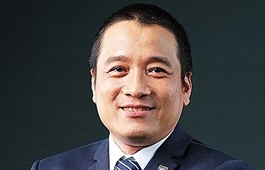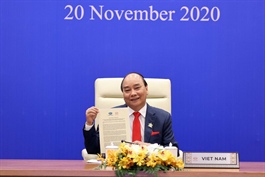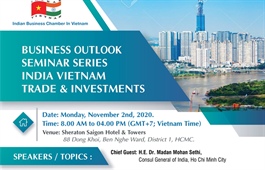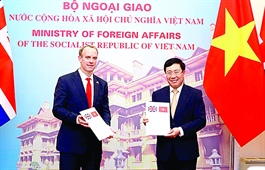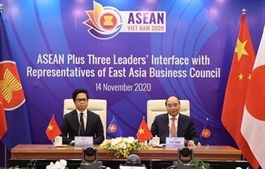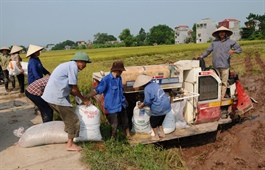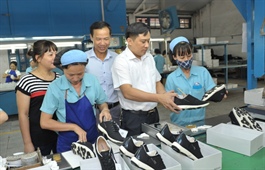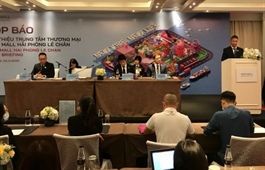Asia Pacific leaders make joint appeal for free and fair trade
Asia Pacific leaders make joint appeal for free and fair trade
Asia Pacific leaders set aside differences on Friday with their first joint communique in three years, calling for free and predictable trade amid the coronavirus pandemic.
A view show virtual APEC Economic Leaders Meeting 2020, in Kuala Lumpur, Malaysia November 20, 2020. Photo by Reuters/Lim Huey Teng.
|
Leaders of the 21-nation Asia-Pacific Economic Cooperation (APEC), who included Vietnam's Prime Minister Nguyen Xuan Phuc, U.S. President Donald Trump, China’s President Xi Jinping, also said they would not resort to protectionist policies.
Their joint statement, after a virtual summit hosted by Malaysia, is set against a backdrop of ongoing trade tensions between the world’s two largest economies.
"The impact of (the U.S.-China) trade war has been eclipsed by the COVID-19 pandemic," Malaysian Prime Minister Muhyiddin Yassin told reporters after the meeting.
"APEC has also pledged to refrain from backtracking and resorting to protectionist measures to keep markets and borders open," he said.
In the communique, the leaders said they recognized "the importance of a free, open, fair, non-discriminatory, transparent and predictable trade and investment environment" to drive growth during the crisis.
APEC countries failed to reach agreement in 2018, after talks were stymied by discord over trade and investment between the United States and China, and last year’s gathering in Chile was canceled due to violent street protests.
Subdued performance
Trump, who has yet to concede defeat in the Nov. 3 U.S. election and begin a transfer of government to President-elect Joe Biden, largely focused on domestic issues in his remarks at the meeting and spoke of the successes of his time in office, a source who heard his address said.
It was an unusually subdued performance by Trump, who has often attacked China over Covid-19, declared it a strategic rival and imposed tariffs on billions of dollars in Chinese goods.
A White House statement said Trump had "reaffirmed the commitment of the United States to building on our unprecedented economic recovery from Covid-19, as well as promoting peace and prosperity in the Indo-Pacific region through strong economic growth".
It said Trump and APEC leaders had endorsed the APEC Putrajaya Vision 2040 "that will make free and fair trade the focus of the APEC agenda for the next two decades".
Although Trump’s administration declared the Asia-Pacific and competition with China to be foreign policy priorities, he has been criticised for limited personal engagement in Asia.
The only other time he has joined an APEC summit was in 2017. He also missed a summit of the Association of Southeast Asian Nations (ASEAN) last weekend, when 15 nations formed the world’s largest free-trade bloc, the Regional Comprehensive Partnership Agreement (RCEP), cementing China’s dominant role in regional trade.
In his remarks on Friday, Xi called for free and open trade and investment, and support for multilateralism.
He said China would "actively consider" signing up for a regional free-trade pact, the Comprehensive and Progressive Agreement for Trans-Pacific Partnership (CPTPP).
When he took office, Trump pulled out of the Trans-Pacific Partnership trade pact, the predecessor to CPTPP.
Biggest challenge
Before the meeting, several APEC leaders warned against protectionism and expressed hope that a Biden administration will engage more and support multilateral trade.
"As we confront this generation’s biggest economic challenge, we must not repeat the mistakes of history by retreating into protectionism," New Zealand Prime Minister Jacinda Ardern said on Friday at the APEC CEO Dialogues.
"APEC must continue to commit to keeping markets open and trade flowing."
Singapore Prime Minister Lee Hsien Loong said on Thursday that U.S. trade policies under Trump had caused "very slow" progress in APEC in recent years, adding that he expected "more multilateralists" in the Biden administration.
U.S. Senator Chris Coons, seen as a contender for secretary of state under Biden, told Reuters he expected the new administration to make an analysis with Congress on "where we are and where we’re going in the U.S.-China bilateral relationship before making any decisions about either carrots or sticks" on trade and Chinese actions related to the coronavirus.


